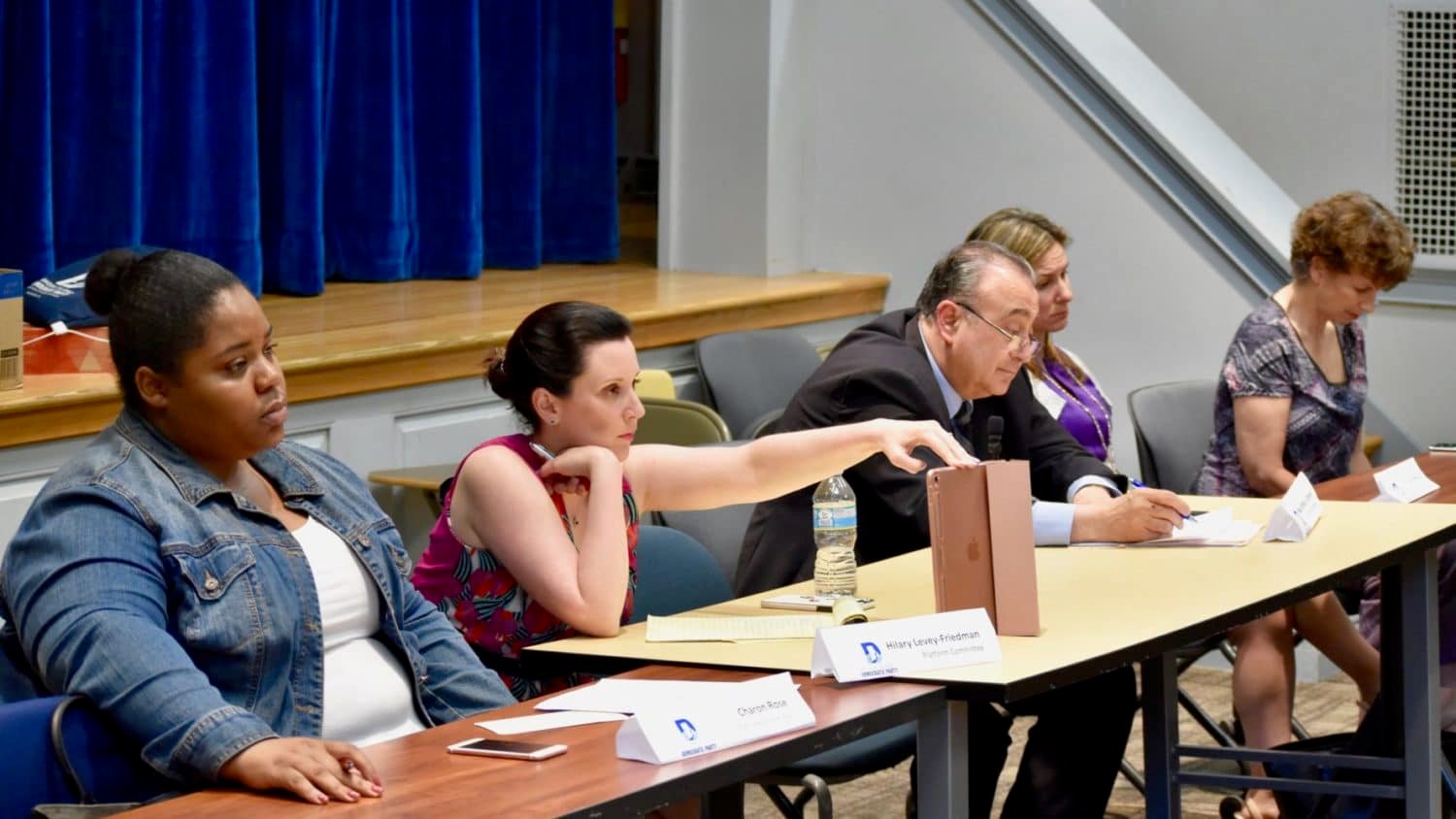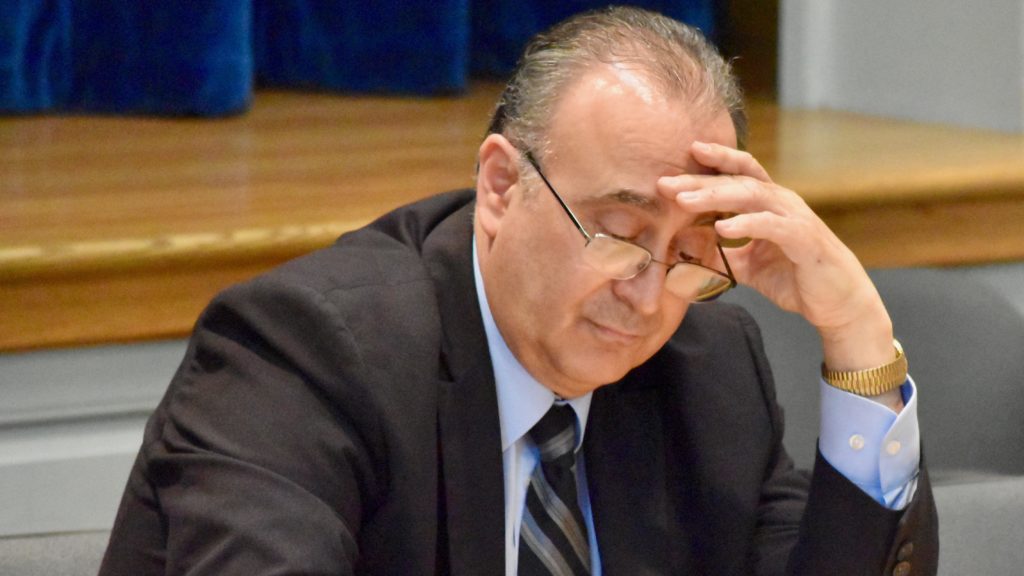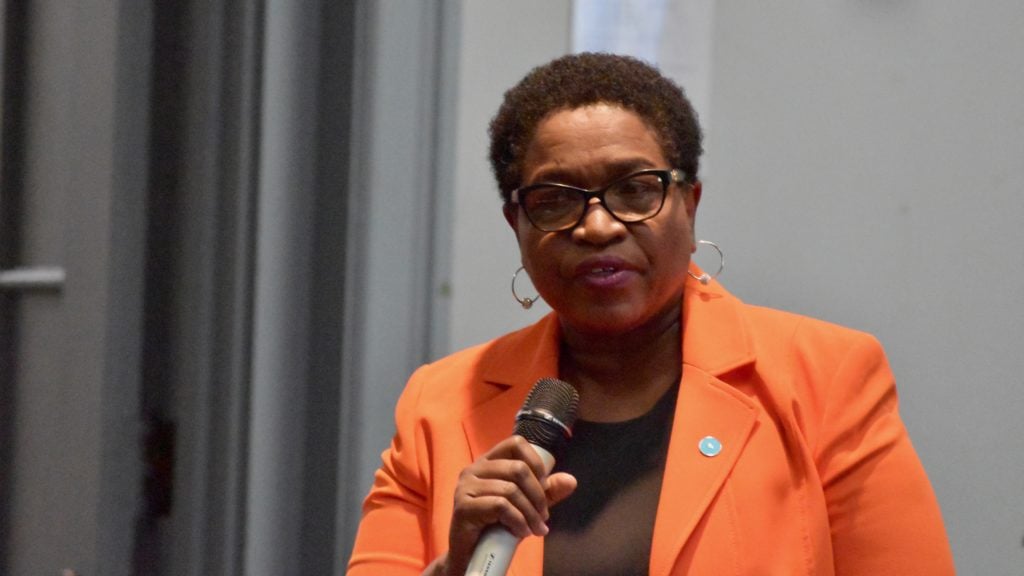Democratic Platform Committee meeting grapples with party divisions in South Kingstown
The fourth public meeting of the Rhode Island Democratic Party (RIDP) Platform Committee was held in South Kingstown with about two dozen people in attendance. As has become the pattern, the issues of greatest concern to participants seem to be reproductive rights, gun safety and immigration, difficult issues for a party seemingly divided along “traditional” versus “progressive” lines. “This platform
May 24, 2018, 2:32 pm
By Steve Ahlquist
The fourth public meeting of the Rhode Island Democratic Party (RIDP) Platform Committee was held in South Kingstown with about two dozen people in attendance. As has become the pattern, the issues of greatest concern to participants seem to be reproductive rights, gun safety and immigration, difficult issues for a party seemingly divided along “traditional” versus “progressive” lines.
“This platform process is a process that I hope will help to heal the divisions within the party,” said Kevin Olasanoye, executive director of the RIDP. “I think one of the challenges we have is that there are not very many forums around the state and around our country, where people have the opportunity to sit down across the table from people with whom they may or may not agree with on a host of issues and have a dialogue.”
“I’m going to submit that I think it is worth the risk of potentially exposing rifts that may or may not exist in the party,” continued Olasanoye. “Because we’ve got to start talking to each other again.”
One issue at the core of the debate over the RIDP platform is defining what, exactly, a platform is and what it intends to accomplish. Olasanoye and Representative Arthur Corvese (Democrat, District 55, North Providence), who chairs the committee, call the document “aspirational.” They mean that the platform does not outline what individual Democrats believe, instead it outlines what the majority of Democrats believe.
But speaker after speaker, at every platform committee meeting I have attended, ask why the platform shouldn’t be something members of the party and voters use to hold elected officials accountable.
Scituate resident Alicia Ann Kelley is an unaffiliated voter who can’t declare herself a Democrat because though, “I would love to affiliate with the Democratic Party, and I think there’s a lot of great information here [in the platform] … there is nothing here binding my party or my future party” to the platform. “I don’t see many people wanting to affiliate because there is no backbone here.”
Olasanoye said that holding Democratic Party officials to the tenets of the platform would be a mistake. The RIDP is building a document that says, “This is what the most of us agree on,” said Olasanoye.
Maggie Kain rose to present a counter argument. If the majority of Rhode Islanders want to protect a woman’s right to choose, or want to decriminalize cannabis, or want single payer healthcare, the Democratic Party should support those efforts by incorporating such aspirations in their platform, and elected Democrats should work towards those goals. (Kain also added that there should be something in the platform against the privatization of state resources, but I digress.)
“To me, the platform is what our party stands on and it is what we, as Democrats, stand for,” said Representative Teresa Tanzi (Democrat, District 34, Narragansett, South Kingstown). “So this document doesn’t have to be a unifying document, in fact. In my opinion it’s not meant to be a unifying document. A platform is a defining document, not a unifying one. it’s what makes us not Republican.”
“Gun violence must be on this platform. Decriminalization of marijuana, must be on this platform. Non-negotiable. Choice must be on this platform and immigration must be on this platform,” said Representative Marcia Ranglin-Vassell (Democrat, District 5, Providence), emphasizing the importance of the Democratic Party taking strong stands on important issues.
South Kingstown Town Council Member Liz Gledhill ran as an independent. “I would say I identify as a Democrat,” said Gledhill. “But I’ve been reluctant to join the Democratic Party mostly because of some of the things [Olasanoye] said earlier, abut there being no real commitment to following the tenets of this document… My reluctance to commit to a party, when you talk about ‘some people believe some things and some people don’t,’ what’s the point of choosing then? I want a party that has a backbone, that sticks to their beliefs.”
“It’s important that we look at not only the current Rhode Island voters but also look towards the future,” said Andy Boardman, who leads the University of Rhode Island College Democrats. “And try to make sure that the Rhode Island Democratic party remains relevant.”
Towards the end of the meeting Executive Director Olasanoye said that the party needs to avoid the divisions that came up during the Bernie Sanders/Hillary Clinton primary in 2016. “The truth is I don’t view the term ‘Traditional Democrat’ as a pejorative. I also don’t think ‘Progressive’ is a pejorative. I think it describes a belief set and that there are a lot of people who believe in progressive ideas who maybe don’t call themselves progressives, and when they’re disparaged in the media, it doesn’t help the Democratic Party. The same way I believe that the people who are on the traditional or moderate or conservative side, whatever you want to call it – If we refer to them in a negative light, I don’t think it helps our party.”
You can watch the entire meeting here:
See also:
Democratic platform committee meeting highlights divisions amid calls for unity
What does it mean to be a Democrat?
UpriseRI is entirely supported by donations and advertising. Every little bit helps:
![]()








